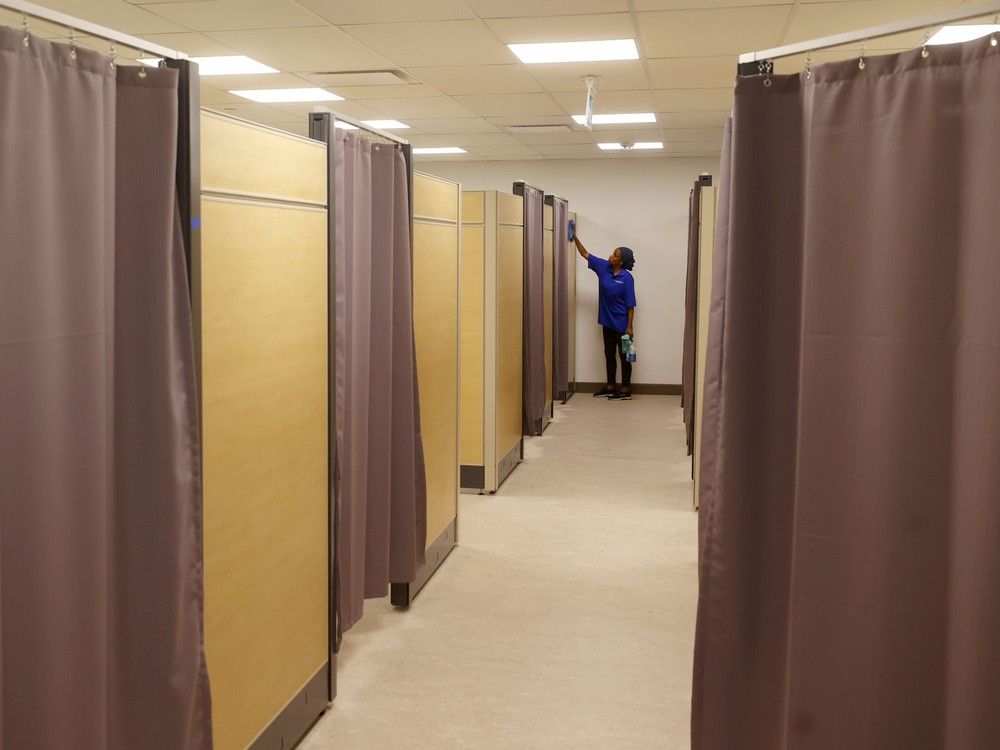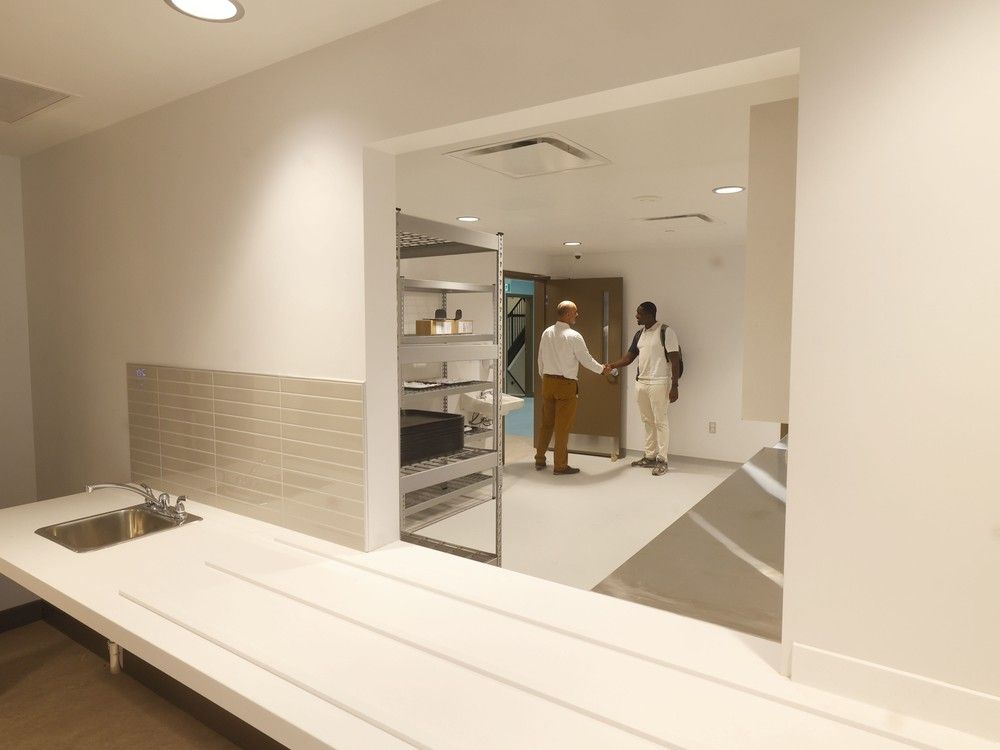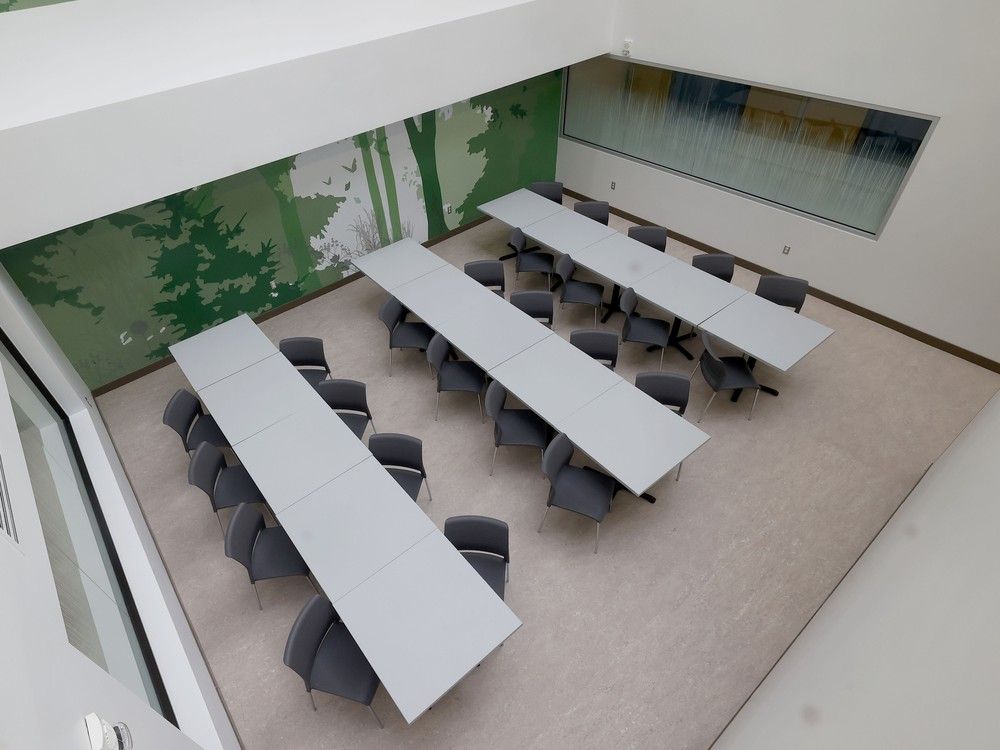Billed as a “major milestone” for transitional housing in Ottawa, city officials unveiled a newly retrofitted downtown office building that will now serve as a temporary home for 140 people, most of them newcomers and refugees.
The former office building at 230 Queen St. was hailed as a “shining example” of an innovative solution to Ottawa’s housing and shelter crisis and the first time a vacant office building has been converted into housing and shelter space.
The building, which is managed by the Catholic Centre for Immigrants (CCI) Ottawa, will offer transitional housing for 140 single adults who are experiencing homelessness, with a focus on newcomers to Canada.
Mayor Mark Sutcliffe was on hand for the unveiling on July 3 along with councillors, city staff and key partners.
“Today’s event is about more than opening up a building. It’s about creating spaces that are safe, inclusive and culturally respectful,” said Coun. Laura Dudas, chair of the community services committee.
Dudas said councillors are “committed to ensuring that every resident has access to the supports they need to live with dignity and stability.
“This project is a shining example of how we can transform under-utilized spaces into places of hope and opportunity… We are opening doors to new possibilities to 140 people who deserve a safe, supportive environment.”
Sutcliffe hailed the project as a “huge milestone” and the first time the city has converted an empty office space into transitional housing.

“Turning a vacant office building into transitional housing is exactly the kind of creative solution we need,” Sutcliffe said. “Right now we are facing a real housing a homelessness crisis in our city and this shows one more step towards making progress and building a more compassionate city… that takes care of everyone, especially our most vulnerable.”
The former office building had “all the right elements — space, location and infrastructure — to make this retrofit possible,” Sutcliffe said.
The newly retrofitted building includes kitchens, dining areas, washrooms, showers, laundry facilities, lounge areas, and dedicated rooms for meetings and workshops.
Coun. Ariel Troster praised the project as an “innovative repurposing” of vacant downtown space in her Somerset ward.
“This also represents a fundamental transformation of our shelter system… it is fundamentally different from the traditional shelter system,” Troster said.

“We know that homelessness is a problem that all of us need to solve, and I hope this will be a lesson to the rest of the community that these kinds of facilities help build community, they can integrate seamlessly into our community, and that they are a good thing and we need more of them.
“We want enough permanent affordable housing for everyone, but in the meantime, people need a safe place to land when they come to Ottawa to start a new life,” Troster said.
Troster called it an “ideal location” on Queen Street near the corner of Bank Street, close to the LRT, transit, downtown amenities and “literally across street” from the Immigration, Refugees and Citizenship Canada offices, which are located at 235 Queen St.
The project transformed 30,000 square feet of vacant office space into a transitional housing facility with four levels, including a lobby.
The top three floors of the building feature “sleeping pods” equipped with a bed, four partial-height walls, a curtain for the entrance, a personal locker and an individual reading light.
Programming will be operated by CCI Ottawa, which also manages the St-Joseph Transitional Housing Program, and the organization will offer “a supportive environment at the facility, including essentials such as meals and direct on-site services.”
The facility will also provide social and skill development services that “facilitate the transition to permanent housing,” according to a news release.

Myriam Mekhi, CEO of CCI Ottawa, said the facility will have 35 staff members onsite, including crisis counselling and employment counselling. Most of the temporary residents will be asylum seekers, Mekhi said.
“We’re doing everything we can to support newcomers as they arrive in our city,” Sutcliffe said. “Ottawa is and continues to be a welcoming city. We’re going to do everything we can to support new people as they arrive in our city, to contribute to our community, to seek refuge from other places — that’s what we’ve always done, that’s we’ll always do.”
Dudas said the Queen Street conversion “is just one part of the puzzle.”
“The city and city staff have been working at all ends to make sure we are acquiring and opening up new opportunities,” Dudas said. “There’s a new transitional housing facility on St-Joseph Blvd. that will eventually see about 150 individuals there. There is a facility on Corkstown Road that has welcomed families into the community. We have (a supportive housing proposal for) Kilborn Place, which is a work in progress, and those are just a couple examples of the work the city is doing to put words into action and making sure everyone in our city who needs a place to stay has a safe place to be.”
The Queen Street project cost $5.6 million and the city signed a 10-year lease, officials said.
Related
- NCC pulls freedom-of-information records from website after language watchdog says they must be in French and English
- OC Transpo LRT lines 1 and 2 to close for maintenance in July



